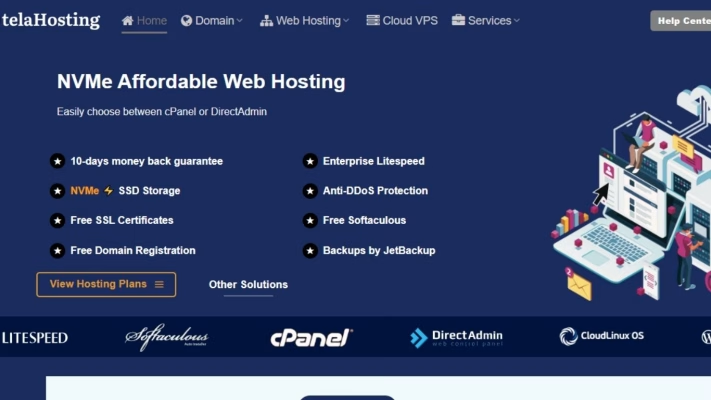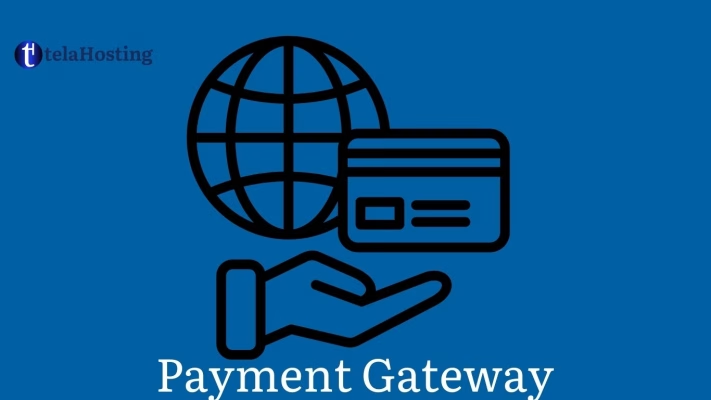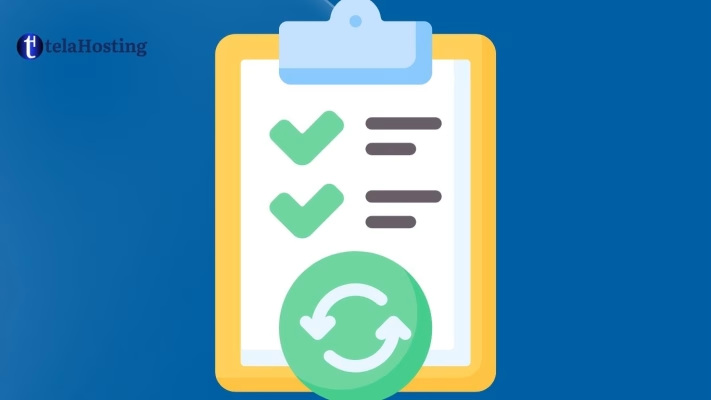
Having an online presence is now necessary especially in Nigeria; it is no longer optional because customers look for you online before making a purchase, whether you own a catering company in Port Harcourt, a tech startup in Abuja, or a fashion brand in Lagos.
However, Nigerians do not always have faith in online business as almost all of us have heard stories of ghost vendors, fake sellers, and “what I ordered vs. what I got” disasters. The standard for demonstrating credibility is therefore higher than it has ever been.
If you want to win customers and keep them coming back, you need more than a website, you need an online presence that radiates trust from every click, post, and message.
This article will walk you through practical, proven steps to build that trust from day one.
Understanding the Nigerian Online Audience
Nigeria is Africa’s largest digital economy with over 122 million internet users. That’s more than half the country’s population and they are active on Facebook, Instagram, TikTok, WhatsApp, and countless websites every day.
The shift is clear as more Nigerians are shopping online, paying bills digitally, booking services via apps, and reading reviews before making purchases. However, this digital growth is happening in a trust-sensitive environment, meaning customers are cautious and selective about which brands they engage with.
Why trust matters in Nigeria
In Nigeria’s mixed economy with vibrant formal sectors alongside thriving informal marketplaces, consumers rely heavily on cues to decide if they can trust a seller or a site. A polished website, active social presence, visible contact details, and secure payment options are the kinds of signals that reassure people that your business is real and not a fly‑by‑night scam.
Trust matters because of networks: a satisfied customer tells friends, a cheated buyer tells hundreds. WhatsApp and community groups amplify word‑of‑mouth in both directions. So a small trust failure (late delivery, unclear refund policy, or a payment glitch) can cost you not just one sale, but your reputation across an entire town or even nationwide.
Businesses that prioritize trust see practical benefits like higher conversion rates, fewer bounce rates, better customer lifetime value, and easier word‑of‑mouth marketing. For personal brands such as consultants, creatives and influencers, credibility opens doors to partnerships and paid work.
For marketplaces and e‑commerce stores, trust lowers friction in checkout and increases acceptance of online payment over cash‑on‑delivery, which in turn reduces operational headaches.
Consumer behavior & cultural context
Buying isn’t just transactional it’s relational. People prefer to deal with sellers who show identity, history, and social proof. Why? Because many buyers still operate in environments where fraud is common, delivery networks are inconsistent, and regulations are unevenly enforced.
That socio‑economic backdrop changes what trust looks like: it’s less about polished UX(user experience) alone and more about signals that say, “This business is connected, reachable, and accountable.”
Practical trust that resonate locally include: a visible phone number and WhatsApp contact, clear physical or postal address (even if you primarily operate online), testimonials with names and locations, proof of past deliveries (photos or tracking numbers), and transparent refund/return policies.
People also look for familiar payment options like bank transfers, cards, and increasingly mobile money solutions and will often test support responsiveness via chat or direct message before buying.
Language and tone matters too. Straightforward, conversational copy, sometimes mixing English with local expressions where appropriate feels more human and credible than stiff, generic corporate language. That doesn’t mean sloppy writing; it means being clear, transparent, and culturally aware.
Common concerns about online transactions in Nigeria
Despite the growth of e-commerce and fintech, a large portion of Nigerians are still hesitant to complete online transactions. Why?
- Fear of scams: Fake sellers disappearing after receiving payment.
- Poor product quality: Items delivered not matching descriptions or photos.
- Payment fraud: Credit card or bank details being stolen.
If you’re doing business online, you must address these fears proactively before your customer even asks.
How to Build Trust and Credibility with an Online Presence in Nigeria
1. Use a Reliable Hosting Provider

Your hosting provider is the backbone of your online reputation. If your website loads slowly or goes offline frequently, visitors will quickly lose confidence in your business. In Nigeria, where internet speeds can be inconsistent, speed and uptime matter even more.
A reliable host like telaHosting offers:
- 99.9%+ uptime so your site is always available.
- Local servers or Africa-based infrastructure to reduce latency.
- Daily backups so you never lose your data.
- Strong security measures to protect against hacking.
Think of it this way: A great product in a locked shop no one can enter won’t sell. Hosting is what keeps your “digital doors” open.
2. Establishing a Strong Brand Identity

Your domain name is the first handshake your business has with a potential customer. A free subdomain like bestfashionstore.freehost.com tells customers you’re not ready for serious business. A clean, memorable domain like bestfashionstore.com.ng signals professionalism instantly.
We at telaHosting make it easy for our Nigerian businesses to secure professional domains at affordable prices, including .ng and .com.ng extensions, perfect for local credibility.
Logo, colors, and consistent brand visuals
Your brand visuals should reflect the quality and personality of your business. Nigerians are drawn to brands that look modern, organized, and relatable. A clean logo, consistent color palette, and professional imagery create a strong first impression.
Crafting a brand voice that resonates locally
Your brand voice is how you “sound” in writing. In Nigeria, people respond well to warmth, wit, and authenticity. You can be professional without being robotic, think friendly shopkeeper rather than faceless corporation.
3. Mobile Friendly & UX that builds confidence

Since over 80% of Nigerian internet traffic is mobile, your design must work flawlessly on small screens. That means large, tappable buttons, readable text, and no horizontal scrolling. A mobile-friendly design isn’t optional, it’s trust insurance.
You know that first impressions online is very important, so, you have seconds to convince someone your site is worth exploring. A cluttered design, broken links, or unclear navigation will instantly make people doubt your credibility.
UX (User Experience) is all about making the visitor’s journey smooth. Menus should be easy to navigate. Forms should be short and simple. Checkout should be straightforward—no hidden costs, no forced account creation.
A trust-building Nigerian website should:
- Have a clean, professional layout that works on both desktop and mobile.
- Show clear contact details (phone, WhatsApp, email, physical address).
- Include real photos of products, services, or the team, stock photos feel generic.
- Display trust badges (SSL, payment logos, partnerships).
- Load fast, even on slower mobile connections.
4. Offering Multiple Payment options & Smooth checkout

In Nigeria, offering only one payment method is like opening a shop that only accepts cheques—people will just walk away. Flexible, familiar payment options reassure customers you can be trusted. That means supporting:
- Debit/credit cards (Verve, Mastercard, Visa)
- Bank transfers (often through instant payment gateways)
- Mobile money and USSD codes
Checkout trust is built with:
- Visible payment security logos (e.g., Verified by Visa)
- Instant payment confirmation screens and email/SMS receipts
- Clear refund policies linked right from checkout
- Transparent pricing (no surprise fees at the last step)
Many Nigerians still prefer to confirm payments before delivery, so providing an order confirmation number or receipt quickly is key.
5. Leveraging Social proof

In Nigeria, recommendations from real people such as friends, family, or trusted public figures is valueable. Social proof tells visitors, “Others have trusted us, and you too can. That’s why social proof is evidence that others trust you.
Types of social proof:
- Customer reviews (on your site, Google, social media)
- Video testimonials showing real people and locations
- Ratings on e-commerce marketplaces
- Endorsements from influencers or community figures
Bad reviews aren’t the end of the world, if you handle them well. Respond politely, offer solutions, and take visible steps to improve. People notice when a business owns its mistakes.
The more authentic your social proof, the stronger the trust signal. Nigerians are savvy; we can spot fake reviews. Real stories, names, and even the occasional typo in a customer’s own words make testimonials more believable.
6. Providing Valuable, Localized Content

Content isn’t just for SEO, it’s your credibility engine. In Nigeria, where customers are cautious about spending online, good content can be the difference between “I’m not sure about them” and “Wow, they know what they’re doing.”
A trust-focused content strategy has three pillars: education, relevance, and consistency.
Education means creating content that answers customer questions before they even ask. For example:
- Blog posts explaining how to verify product authenticity.
- Guides on how to avoid common scams in your industry.
- Tutorials on using your product or service effectively.
Relevance is about speaking to Nigerian realities. If you’re selling clothing, talk about how fabrics behave in our climate. If you’re a tech service, explain payment integration with local gateways like Paystack or Flutterwave.
Consistency builds recognition. You can’t post once every six months and expect people to remember you. A weekly blog, twice-weekly social posts, or a monthly newsletter keeps you in your audience’s mind.
Localized content works because it signals “We understand you.” That means using examples, terms, and case studies from Nigerian life. Even something as simple as referencing the Naira (₦) instead of only USD in pricing shows attentiveness.
An FAQ section is one of the most underrated trust-builders. It’s not just for answering questions, it’s for removing hesitation. Your FAQ should address:
- Payment methods and processing times.
- Delivery timelines and regions you cover.
- Return/refund procedures.
- How to contact customer support.
By anticipating concerns, you reduce customer anxiety and make it easier for them to click “buy” without worrying. telaHosting users, for example, can easily add an FAQ page through popular CMS tools like WordPress, no coding needed.
7. Optimize for Local Search (Local SEO)

If you want Nigerians to find and trust your business online, you need local SEO that is the practice of optimizing your site so it appears in location-specific searches. Start with your Google Business Profile.
It’s free, it boosts credibility, and it puts you on Google Maps. Complete every field: name, address, phone number (NAP), hours, photos, and website link. Next is to target local keywords.
If you run a bakery in Abuja, don’t just try to rank for “best bakery”, go for “best bakery in Abuja” or “custom cakes Abuja.” That’s how real customers search.
Once your Google Business Profile is live, encourage customers to leave reviews there—positive Google reviews boost both your ranking and your trust factor. Add fresh photos monthly, and respond to every review (good or bad).
You can also list your business in Nigerian online directories such as:
- VConnect
- ConnectNigeria
- Local Facebook Marketplace groups
- LinkedIn business listings
Consistency is key; make sure your NAP details are identical across all platforms. Even a small difference (e.g., “Rd” vs. “Road”) can hurt search credibility in Google’s eyes.
8. Engaging Responsively with Customers

In Nigeria, customers value responsiveness almost as much as product quality. If they send a WhatsApp message and hear nothing for hours, trust drops immediately.
Live chat on your site, integrated WhatsApp buttons, and active social DMs are the modern “shop counters.” People expect fast answers, often in minutes, not hours.
Transparency means being upfront about timelines, prices, and policies. If delivery to Port Harcourt will take 5 days, say so. If a certain product is out of stock, don’t let people buy it without warning.
Have ready-to-go templates for common customer questions, it keeps responses consistent and professional. Use a friendly, conversational tone, even in formal industries.
An escalation path is a simple plan for what happens when a support rep can’t solve an issue immediately. Maybe it goes to a supervisor within 24 hours, or the customer gets a callback. The point is: no one should feel ignored.
9. Tracking and Measuring Trust Signals
![]()
You can’t improve what you don’t measure. Trust online can feel intangible, but there are specific KPIs (Key Performance Indicators) that give you clues.
Some key trust metrics:
- Conversion rate: Are visitors actually buying or signing up?
- Bounce rate: Are people leaving after one page?
- Form completion rate: Do people fill out your contact or signup forms?
- Net Promoter Score (NPS): Would your customers recommend you?
- Refund/return rate: High rates may signal trust or product issues.
Tools like Google Analytics and Hotjar can help you track conversion rate, bounce rate, form completion, NPS. For example, if your bounce rate is over 70%, it might mean visitors don’t find your site trustworthy or relevant.
NPS surveys are simple: ask customers to rate how likely they are to recommend you from 0–10, then follow up with “Why?” The feedback can reveal exactly what’s building or eroding trust.
10. Following a Trust-Building Checklist

A monthly trust audit keeps your business credible. Here’s a quick audit checklist you can run through:
- SSL certificate active
- HTTPS on all pages
- Fast mobile load time (<3s)
- Clear contact info with WhatsApp
- Local currency pricing (₦)
- Payment gateway badges visible
- Refund policy linked on checkout
- Privacy policy page live
- Testimonials with names/locations
- Real product or team photos
- Google Business Profile optimized
- At least 5 recent positive reviews
- Consistent NAP across directories
- Active social media accounts
- Secure admin passwords & 2FA
- Weekly or daily site backups
- Local hosting or CDN nodes in Africa
- FAQ page addressing key concerns
- Customer support response <1 hour
- Regular content updates (blog, news)
Run this checklist monthly as small improvements compound into major trust gains over time.
How telaHosting can help
telaHosting isn’t just a place to park your website it’s a partner in building trust. With 99.9% uptime, local Nigerian servers, and free SSL certificates on all plans, we gives your business the technical backbone customers expect.
We also offer:
- Daily backups so your site’s safe even if something goes wrong.
- 24/7 customer support that understands the Nigerian market.
- Scalable hosting plans to handle traffic spikes without downtime.
- One-click integrations with top Nigerian payment gateways.
For small businesses, we also provides easy WordPress installation, domain management, and email hosting, so you can run a professional, credible online presence from day one.
Conclusion
Building online trust in Nigeria isn’t about one single feature, it’s the combination of technical reliability, clear communication, social proof, and consistent delivery.
From choosing a secure, fast host like telaHosting to actively managing your reviews and keeping your site mobile-friendly, every action you take sends a signal to your audience: you can trust us.
Remember, trust is built slowly but lost quickly. Start with the basics (SSL, contact info, clear policies), then layer on customer education, local SEO, and responsive support. Over time, you’ll not only attract more visitors, you’ll turn them into loyal customers.
FAQs
- How long does it take to build online trust in Nigeria?
It can take weeks or months, depending on how consistent you are. Quick wins come from visible trust signals like SSL, reviews, and clear contact info. - Is NDPR compliance mandatory for small businesses?
Yes, if you collect personal data from Nigerian citizens, NDPR applies to you. Even a simple contact form means you should have a privacy policy. - Why should I choose a local host like telaHosting?
Local hosting reduces latency, improves site speed for Nigerian users, and signals you have a real presence in the market. - What’s the easiest trust-building step I can take today?
Install an SSL certificate and update your contact details across your site and social platforms. - How do I handle negative reviews without hurting my brand?
Respond promptly, acknowledge the issue, offer a fix, and follow up to ensure the customer is satisfied. Done right, it can actually improve your reputation.